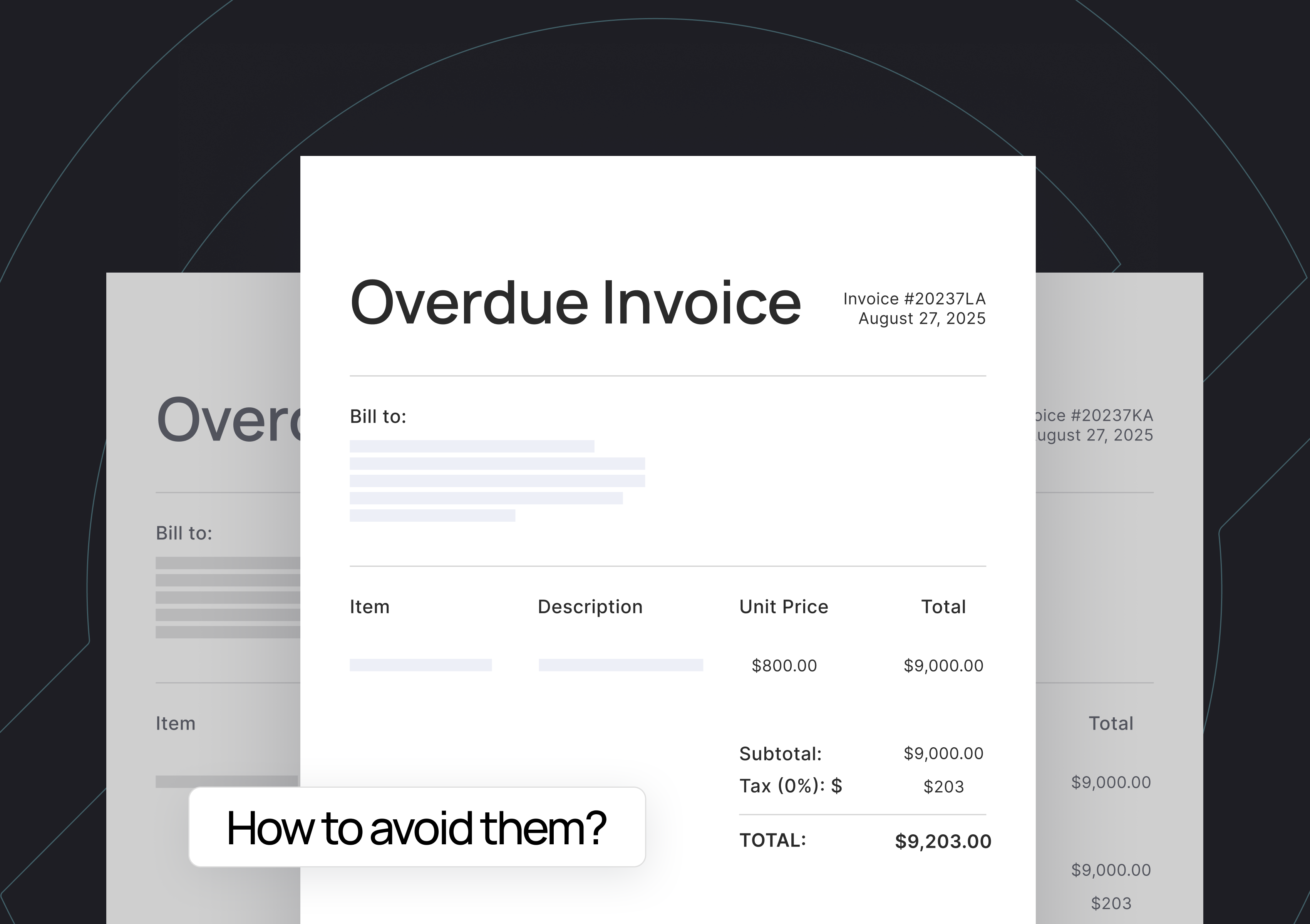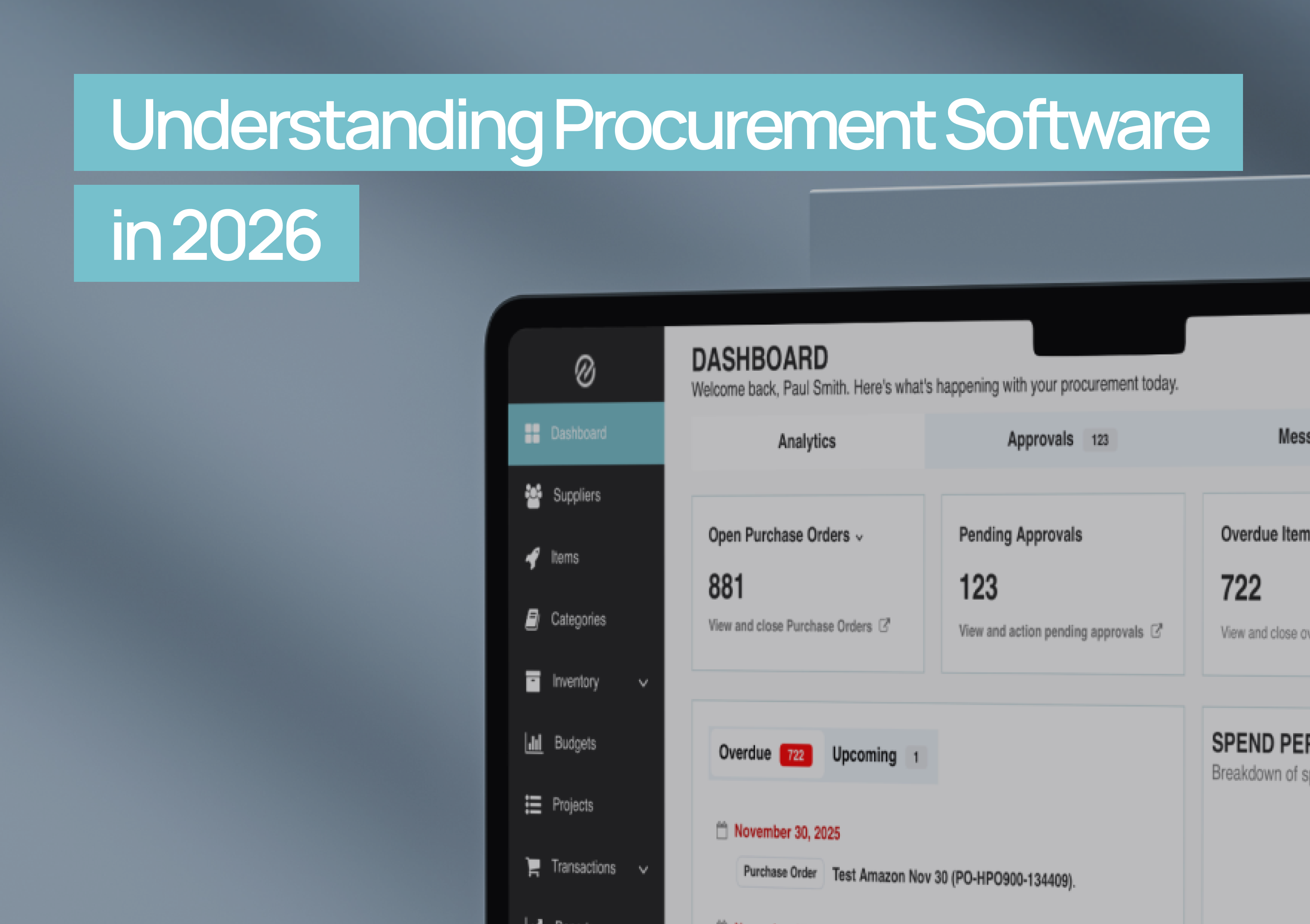Late payment fees might seem like a minor inconvenience at first glance, but they can quickly snowball into a serious financial burden for businesses. In procurement, where transaction volumes are high and supplier relationships are critical, late payments don’t just hurt your bottom line. They erode trust and efficiency.
Understanding why late payment fees occur and implementing proactive strategies can help your procurement team improve cash flow, strengthen vendor relationships, and avoid unnecessary penalties.
The Reality of Late Payment Fees in Procurement
In procurement, late payment fees are charges imposed by suppliers when buyers fail to pay invoices within the agreed terms. These fees often range from a flat penalty to a percentage of the overdue amount. While they might be designed to encourage timely payments, they can also reflect deeper issues in your procurement process.
Late payments also have a broader ripple effect. Suppliers may tighten credit terms, delay shipments, or deprioritize your orders, all of which can impact project timelines and operational efficiency.
Reasons for Late Payment Fees
Late payment fees don't just happen randomly. They are usually symptoms of internal or operational gaps within the procurement or finance process. Here are some of the most common reasons businesses fall behind on payments.
Cash Flow Constraints
Even profitable businesses can struggle with cash flow from time to time. Delayed receivables, seasonal downturns, or unexpected expenses can limit your ability to pay vendors on time. Without a strong cash flow plan, late payments become a recurring issue.
Inefficient Internal Processes
When payment approvals, invoice verifications, or budget reviews take too long, payments get stuck in the pipeline. If your procurement and finance teams aren’t aligned or your workflows rely heavily on manual steps, delays are inevitable.
Disputed or Inaccurate Invoices
Errors in invoicing, such as incorrect amounts, mismatched purchase orders, or missing documentation, often lead to payment delays. While vendors might be quick to issue penalties, your team may be waiting for clarification or corrections before releasing funds.
Lack of Organization and Oversight
Without a centralized system to track invoices, due dates, and payment terms, it’s easy to lose visibility over your accounts payable. A decentralized or paper-based system increases the risk of missed payments.
Change in Contract Personnel
When staff responsible for vendor contracts or payment approvals leave or shift roles, payment responsibilities can fall through the cracks. Without clear documentation and transitions, continuity is lost, and late fees can follow.
Strategies to Prevent Late Payments
Avoiding late payment fees is not just about paying faster. It's about working smarter. By optimizing internal systems and improving communication, procurement teams can significantly reduce the risk of delays.
Set Clear Terms and Expectations
Clearly defined payment terms create accountability from the start of the supplier relationship.
- Include payment terms in every contract and purchase order so both parties understand due dates.
- Communicate expectations during vendor onboarding to ensure there’s no confusion about timelines or penalties.
- Negotiate realistic payment timelines that align with your internal approval and cash flow cycles.
Implement Effective Invoicing Processes
Streamlined invoicing reduces delays and minimizes the risk of errors that can hold up payments.
- Use standardized invoice templates that require vendors to include key details like PO numbers, payment terms, and due dates.
- Establish a consistent approval workflow with defined roles, responsibilities, and timelines.
- Automate invoice matching to quickly reconcile invoices with purchase orders and receipts.
Set Payment Reminders
Reminders ensure important deadlines don’t slip through the cracks.
- Schedule automated reminders through your accounting or procurement system to notify stakeholders of upcoming due dates.
- Send gentle follow-ups internally to ensure approvals or verifications are completed in time.
- Keep a shared calendar or dashboard with invoice timelines and payment priorities visible to your finance team.
Leverage Procurement Software
Procurement software not only increases efficiency but also adds transparency to the payment process.
- Centralize invoice tracking and approvals to ensure everyone sees the same data in real-time.
- Generate reports on due invoices and outstanding payments to catch potential late fees before they hit.
- Integrate with accounting tools so there’s no disconnect between procurement and finance functions.
Reduce Late Payment Fees and Improve Procurement Processes with Tradogram
Avoiding late payment fees isn’t just about avoiding penalties. It’s about building efficient procurement systems that support timely payments, better supplier relationships, and long-term cost savings. By identifying the root causes and implementing smart strategies, with the help of tools like Tradogram, your team can stay ahead of deadlines and focus on what matters most.
.png)


.png)
.png)


.webp)
.png)
.png)









